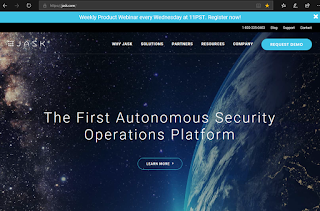Elisa Oyj, a Finnish telecommunications company based in Helsinki, is the first operator in the world to begin a commercial 5G service. Elisa's 5G networks now operational in Tampere and Tallinn.
On 27-June-2018, Elisa announced that it had begun to sell 5G subscriptions.

The first person to use the 5G network was Anne Berner, Minister of Transport and Communications, who made a video call to Kadri Simson, Minister of Economic Affairs and Infrastructure in Estonia.
Elisa noted that the first GSM telephone call in the world was also made using its network.
However, Finland has yet to officially issue 5G licenses.
"We aim to make Finland the leading nation as a developer of 5G mobile services. The Ministry of Communications is ready to allocate the first 5G licenses to the 3,400–3,800 megahertz frequency band in autumn, which will make Finland among the first countries in the world to start building 5G networks, says Anne Berner, Minister of Transport and Communications.
On 27-June-2018, Elisa announced that it had begun to sell 5G subscriptions.

The first person to use the 5G network was Anne Berner, Minister of Transport and Communications, who made a video call to Kadri Simson, Minister of Economic Affairs and Infrastructure in Estonia.
Elisa noted that the first GSM telephone call in the world was also made using its network.
However, Finland has yet to officially issue 5G licenses.
"We aim to make Finland the leading nation as a developer of 5G mobile services. The Ministry of Communications is ready to allocate the first 5G licenses to the 3,400–3,800 megahertz frequency band in autumn, which will make Finland among the first countries in the world to start building 5G networks, says Anne Berner, Minister of Transport and Communications.
- On 14-May-2018, Ooredoo claimed to be the first operator in the world to launch a live 5G network. Its deployment runs on the 3.5GHz spectrum band. Ooredoo announced that its first 5G site was activated just days are its 5G commercial core came online.
The first stage of Ooredoo’s 5G Supernet deployment will cover an area from The Pearl Qatar to Hamad International Airport, with Lagoona, Katara Cultural Village, West Bay, the Corniche and Souq Waqif also included in the initial commercial launch coverage area.
The carrier did not say whether it had begun to sell 5G subscriptions, 5G smartphones or 5G CPE.
Speaking at the event, Waleed Al Sayed, Chief Executive Officer, Ooredoo Qatar, said: “Today, Ooredoo and Qatar make history. We are the first company in the world to offer access to 5G technology and services, and the people of Qatar are the first to have access to the incredible benefits this technological upgrade will bring. We dedicate this important milestone to the people of Qatar and to our beloved leaders, who have encouraged this step in building the knowledge-based economy of Qatar.”
























